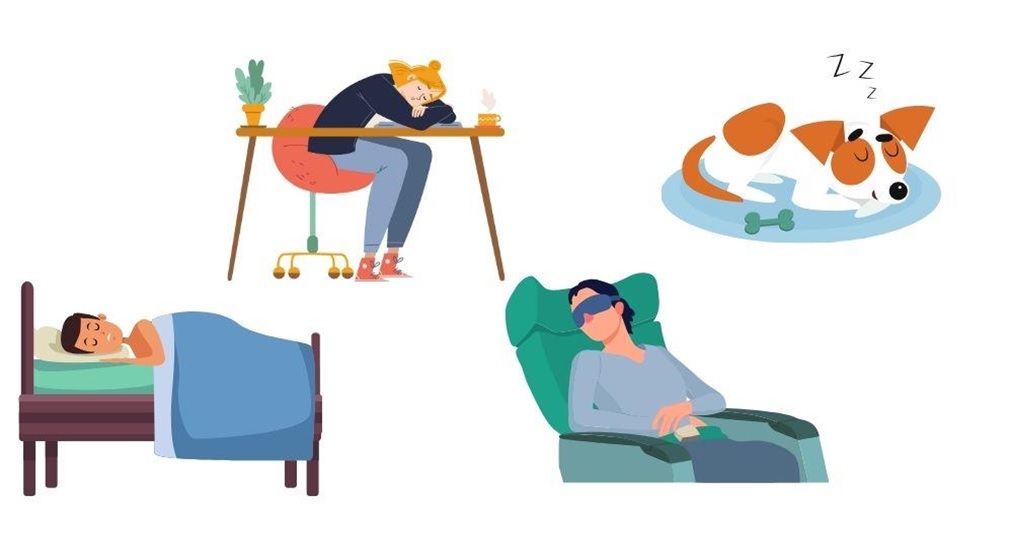
Narcolepsy is a chronic neurological disorder that significantly impacts sleep-wake cycles, leading to excessive daytime sleepiness, sudden sleep attacks, and other related symptoms. While there is no cure for narcolepsy, effective management strategies can help individuals improve their quality of life. This guide outlines various approaches to managing narcolepsy, focusing on lifestyle changes, medical treatments, and coping strategies.
1. Understanding Narcolepsy
Before diving into management strategies, it’s essential to understand the nature of narcolepsy. The disorder is primarily characterized by:
- Excessive Daytime Sleepiness (EDS): Persistent sleepiness that can interfere with daily activities.
- Cataplexy: Sudden loss of muscle tone triggered by strong emotions.
- Sleep Paralysis: Temporary inability to move or speak while falling asleep or waking up.
- Hypnagogic Hallucinations: Vivid hallucinations that occur while falling asleep or waking up.
2. Medical Management
Effective medical management is crucial for controlling narcolepsy symptoms. Treatment options may include:
-
Medications:
- Stimulants: Medications such as modafinil (Provigil) and amphetamines (e.g., Adderall) can help reduce excessive daytime sleepiness.
- Sodium Oxybate: This medication is effective for both EDS and cataplexy and is often considered a first-line treatment for Type 1 narcolepsy.
- Antidepressants: Certain antidepressants can help manage cataplexy and other symptoms, particularly in individuals with Type 1 narcolepsy.
-
Regular Follow-ups: Regular consultations with a healthcare provider specializing in sleep disorders can help monitor symptoms and adjust treatment plans as needed.
3. Lifestyle Modifications
Incorporating lifestyle changes can significantly enhance the management of narcolepsy:
-
Establish a Sleep Routine:
- Consistent Sleep Schedule: Go to bed and wake up at the same time every day to regulate your body’s internal clock.
- Pre-Sleep Rituals: Engage in calming activities before bed, such as reading or meditation, to signal to your body that it’s time to wind down.
-
Optimize Sleep Environment:
- Comfortable Sleep Space: Ensure your bedroom is dark, quiet, and cool. Consider using blackout curtains and white noise machines.
- Limit Distractions: Remove electronic devices that can disrupt sleep, such as smartphones and televisions.
-
Incorporate Naps:
- Scheduled Naps: Short naps (10-20 minutes) can help alleviate daytime sleepiness. Schedule these naps at times when you feel most tired.
- Avoid Long Naps: Longer naps can lead to sleep inertia, making you feel groggier upon waking.
4. Diet and Nutrition
Diet can play a significant role in managing narcolepsy symptoms:
- Balanced Diet: Focus on a well-balanced diet rich in fruits, vegetables, whole grains, lean proteins, and healthy fats. This can help maintain energy levels throughout the day.
- Limit Caffeine and Sugar: While caffeine may provide a temporary boost, it can disrupt nighttime sleep. Similarly, high-sugar foods can lead to energy crashes.
- Stay Hydrated: Drink plenty of water throughout the day, but limit fluid intake in the evening to reduce nighttime awakenings.
5. Physical Activity
Regular physical activity can improve overall well-being and help manage narcolepsy symptoms:
- Exercise Regularly: Aim for at least 30 minutes of moderate exercise most days of the week. Activities like walking, swimming, or cycling can enhance energy levels and improve sleep quality.
- Timing Matters: Avoid vigorous exercise close to bedtime, as it may interfere with your ability to fall asleep.
6. Stress Management
Stress can exacerbate narcolepsy symptoms, making stress management essential:
- Relaxation Techniques: Incorporate stress-reducing practices such as yoga, meditation, or deep-breathing exercises into your daily routine.
- Mindfulness Practices: Engage in mindfulness or cognitive behavioral therapy (CBT) to help manage anxiety and improve sleep quality.
7. Support Systems
Building a strong support network can significantly enhance the quality of life for individuals with narcolepsy:
- Educate Family and Friends: Help loved ones understand narcolepsy to foster empathy and support. Open communication can lead to better understanding and accommodations.
- Join Support Groups: Connecting with others who have narcolepsy can provide emotional support and practical advice. Look for local or online support groups.
- Professional Help: Consider working with a therapist or counselor who understands narcolepsy to develop personalized coping strategies.
8. Workplace Accommodations
For those who are employed, navigating the workplace can be challenging:
- Communicate with Employers: Discuss your condition with your employer to explore potential accommodations, such as flexible work hours or the option to take short breaks during the day.
- Create a Supportive Work Environment: Consider adjustments to your workspace that can help minimize distractions and fatigue, such as using ergonomic furniture or having a quiet area to rest.
9. Travel and Social Activities
Traveling and socializing can present unique challenges for individuals with narcolepsy:
- Plan Ahead: When traveling, ensure you have a plan for rest and recovery. Schedule breaks during long trips and consider bringing sleep aids or medications.
- Inform Travel Companions: Let friends or family know about your condition so they can provide support and understanding during social events or outings.
10. Future Considerations
As research continues, staying informed about new developments in narcolepsy management is essential:
- Stay Updated on Research: Follow advancements in narcolepsy research, including potential new treatments and therapies that may become available.
- Participate in Clinical Trials: If eligible, consider participating in clinical trials to contribute to the understanding of narcolepsy and potentially gain access to new treatments.
Conclusion
Managing narcolepsy requires a comprehensive approach that includes medical treatment, lifestyle modifications, and support systems. By implementing these strategies, individuals can improve their quality of life and effectively cope with the challenges posed by narcolepsy. With the right tools and support, it is possible to lead a fulfilling life while managing this chronic condition.





Leave a Reply